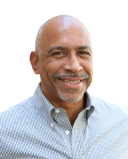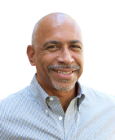Career
You Have Nothing to Hide and There’s Strength in Numbers
A Personal Perspective: People often keep their illnesses to themselves.
Posted October 6, 2022 Reviewed by Vanessa Lancaster
I had never been a sickly person, but cancer was no stranger to me. Over the years, I developed an intimate relationship with cancer. Still, in my previous encounters, I had been nothing more than a bystander, a voyeur, and an intimate but detached observer.
I had seen others on their cancer journeys and watched, supported, and cried with them as it slowly took them down. But I knew it was their cancer journey, not mine.
For that reason, my diagnosis felt different. I knew from watching, listening, and observing how unforgiving the lessons of a cancer journey could be, but the journey I was about to take was still a mystery to me. How sick would I get? Would I be in pain? How would I be affected by the chemo and radiation? Would I be able to continue working?
In each previous case, the cancer teacher had provided harsh lessons to a friend, a relative, a mentor, and eventually, a wife, but not me. I was close enough to know that the experience could be difficult, but I also knew the lessons on the journey were theirs, not mine. Still, my past proximity taught me enough to know that this teacher didn’t play.
Hearing that my cancer was treatable was reassuring. I figured that the surgery was the worst, and when I went to see Dr. Swanson after the surgery, I assumed that the worse part was behind me. I had an eight-inch scar running down the side of my neck, which surprisingly didn’t look too bad, and I was having trouble swallowing. However, I was experiencing very little pain.
Dr. Swanson told me I was healing well in his confident, no-nonsense matter. I summoned the courage to ask a follow-up question: “Am I through the worst of it, doctor?” He nodded affirmatively but then warned, “The next part won’t be easy, though.”
At that point, I started to suspect that the next leg of the journey might be more difficult than I had hoped or expected. The nurse the doctor sent in to speak to my wife and me after he left affirmed my suspicions: Unlike the doctor, she was compassionate, warm but also stern, and serious. She evoked deep empathy, but she was unequivocal.
This is going to be very difficult. Your treatment will be aggressive and intense. It will be hard, but you can do this. You are young and healthy. You have a wife to support you. What you’re about to go through will be very difficult, but you can do this. You will be okay, eventually.
She meant her words to be reassuring, but her serious, no-nonsense tone and humane, heartfelt delivery were even more disturbing than the doctor’s. Tears came to my and my wife’s eye as we listened to her message, and my wife doesn’t cry very often.
As we both began to cry, we embraced. It was clear that I was just at the beginning of my cancer journey, and unlike my past encounters with cancer, this time, I was the patient and the traveler. Whether I was ready or not, the journey had begun, and the lessons on this voyage were for me.
Part of the reason I was caught off guard by the realization that my journey was far from over was that I was immersed in my work and hadn’t been in any pain or discomfort. In fact, if I hadn’t been on a series of zoom calls which often resulted in me looking at my face far more closely than I typically do, I might not have noticed the lump on my neck.
After we heard from the nurse, I retreated to the bathroom, where I could take in the news by myself, wash my face, and dry my eyes. I needed to regain my composure and put back on my game face.
When I returned to the room where my wife and the nurse were still talking, I said nothing. I was in shock. I had nothing to say. My mind drifted toward self-pity as I pondered the news and realized I now knew the answer to my question, “Why me?”
Having lost a close friend and my first wife to this disease, I knew my diagnosis was serious. I also knew that cancer affects all kinds of people, regardless of race, age, profession, or income. That’s when I realized how stupid my question was. Why not me?
I knew that the treatments could be as bad as the disease itself, and both the doctor and nurse were clear in warning me that I would be in for a rough course of treatment.
Following surgery on my neck, I was scheduled to have 33 days of radiation and seven weekly chemotherapy treatments. Each chemo treatment would last five to six hours.
Dr. Swanson warned that many people with my diagnosis are not in pain and put off treatment.
“Even though the surgery removed 95 percent of the cancer, it would be a mistake to put the treatment off,” he said in his matter-of-fact monotone. “Putting off treatment will only worsen the prognosis and increase the possibility that the cancer will spread.”
I was unprepared for being sick and refused to embrace my new identity as a cancer patient. I also didn’t want to be pitied. Therefore, I initially thought it would be best to keep my illness to myself. Aside from my wife and my assistant at work, why did anyone else have to know? I didn’t want the disease to define me, and I didn’t want to carry the emotional burden of telling my kids, who remained traumatized from losing their mother to cancer 16 years ago. I didn’t even want to tell my mother or siblings because I didn’t want them to worry about me. It would be my illness, my battle, my cancer journey.
That’s when I received my third and fourth lessons: You have nothing to hide, and there’s greater strength in community.
My wife is a psychologist, and she suggested that it would be helpful for me to connect with others who had my illness. I didn’t think there would be much value in this, but reluctantly, I agreed.
After speaking to a few who had survived my form of cancer, concerns about sharing the news faded. I soon learned that there was a large fraternity (this form of cancer is most common among men) of present and former cancer patients who communicate regularly about their challenges due to the illness and treatment.
Hearing how others had coped with the illness proved to be profoundly important and helpful. From them, I learned what I should expect as the treatments progressed and what the recovery would be like. Listening to them and asking questions reduced the sense of isolation I was experiencing and erased my desire for privacy.
Knowing that I was part of this community gave me the courage to share the news with family, friends, and co-workers. I also made myself available to speak to others on the cancer journey who were having more difficulty than me. Despite the difficulty I was experiencing, I wanted to be helpful to others. I no longer felt isolated. I soon learned that by sharing the news about my cancer with others, I received an outpouring of care, support, and concern, that helped ease the burden of my illness.




